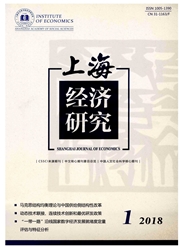

 中文摘要:
中文摘要:
本文在建立协整分析模型的基础上,对城乡居民人均消费支出差距与城乡居民人均社会保障差异(1995~2008年)进行了协整检验、Granger因果关系分析。结果表明,把城乡居民人均可支配收入差距(GINI系数)作为控制变量的情况下,我国城乡社会保障不但没有缩小城乡居民消费差距,反而加剧了城乡居民消费差距。而且,城乡居民人均消费支出差距与城乡居民人均社会保障差异之间存在着单向的因果关系,即我国城乡居民人均社会保障差异是导致城乡居民人均消费支出差距的格兰杰因果原因。
 英文摘要:
英文摘要:
Based on the cointegration analysis model, this paper applies Johansen test and Granger causality model to study the dynamic correlations between urban-rural social security and consumption disparity(THEIL INDEX) with income disparity (GINI coefficient) as a exogenous variable in china (1995-2008). The result shows that there exists not only a one way granger relationship but al so a long term relationship between urban-rural social security and consumption disparity(THEIL INDEX). In other words, the Urban-Rural Social Security system not only does not play a role in regulating income and narrowing the gap, but continues to widen the wealth gap between urban and rural.
 同期刊论文项目
同期刊论文项目
 同项目期刊论文
同项目期刊论文
 Understanding online purchase decision making: The effects of unconscious thought, information quali
Understanding online purchase decision making: The effects of unconscious thought, information quali Improving Response Rates in Web Surveys with Default Setting: the Effects of Default on Web Survey P
Improving Response Rates in Web Surveys with Default Setting: the Effects of Default on Web Survey P Extend to Online or Offline? The Effects of Web-brand Extension Mode, Similarity and Brand Concept o
Extend to Online or Offline? The Effects of Web-brand Extension Mode, Similarity and Brand Concept o 期刊信息
期刊信息
